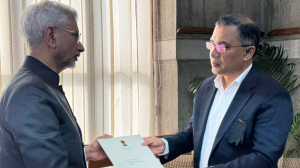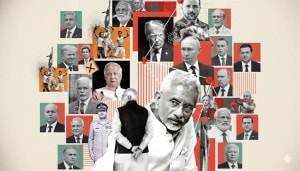Pain Plainspeak
GOT a splitting headache? Bumped into a table corner? Brought back a black-and-blue bruise from a contact sport? Arthritis acting up? Often,...

GOT a splitting headache? Bumped into a table corner? Brought back a black-and-blue bruise from a contact sport? Arthritis acting up? Often, we think the solution for these situations lies in an analgesic. Pop a pill, forget the pain.
But that routine may be, should be, about to change. New medicine suggests that pain is as much a disease as a symptom. And like any other disease, it requires a proper and systematic cure.
Isn8217;t pain a fact of life? Why give it so much importance?
Healthcare professionals distinguish between acute pain and chronic pain. While injury-related pain is discomfiting for a limited period, chronic pain seriously impacts the quality of life. Pain, in fact, is the commonest reason why people visit doctors. It is also the major cause of disability. Pain causes significant distress and impairment in social, occupational and other important areas of functioning.
8216;8216;Chronic pain is not biologically useful. It defers healing and recovery,8217;8217; points out Dr KJ Chaudhary, pain management consultant at Delhi8217;s Indraprastha Apollo.
What does pain cost?
The price extracted by pain is not measured only in black and blue. While there are no specific statistics for India, a generalised study indicates that about 10 per cent of the world population suffers from painful disabilities at any given time. About 90 per cent of the pain problems are acute and the rest are chronic pain.
8216;8216;Chronic pain is the leading cause of disability. The US spends 13 billion annually on migraines, back pain costs the UK between pound;6,600 and pound;12,300 million a year,8217;8217; says Dr Chaudhary.
| nbsp; |
OLD BONES
|
||||
| nbsp; |
OLD people are at increased risk thanks to arthritic disorders, diabetic neuropathy, post-herpetic neuralgia, post-stroke neurologic impairment and Parkinson8217;s. They require special care. Some pointers: |
nbsp; | |||
What8217;s wrong in popping a pill to kill pain?8217;
8216;8216;Every drug has a ceiling effect, that is, after a period of time, it may cease to have the positive impact it did initially,8217;8217; says Dr Chaudhary. Studies have shown that NSAIDs or pain killers can cause drug-induced renal failure over long-term use. Moreover, 30-40 per cent of people prescribed NSAIDs for a few weeks also complain of gastritis.
So what exactly is pain management?z
A relatively new speciality that treats pain as a disease. 8216;8216;Any pain that lasts for more than two weeks needs medical intervention,8217;8217; says Dr Chaudhary. Intervention, prescribed after pinpointing the root cause, includes medication and non-pharmacological methods. Such as:
8226; Psychotherapy and behavioural therapy, including self-monitoring and self-reinforcement techniques
8226; Relaxation as well as distraction techniques
8226; Exercise routines, including yoga, based on whether movement needs to be increased or limited
8226; Acupuncture and heat and cold massage for pain relief
8226; Nerve blocking or numbing a nerve that causes pain, temporarily or permanently.
- 01
- 02
- 03
- 04
- 05































